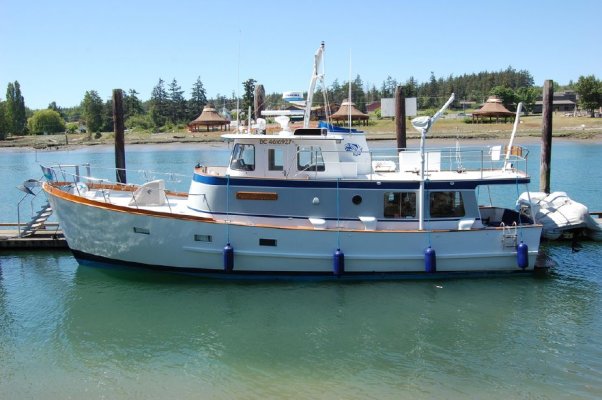I am near completion of the acquisition of my first proper trawler, and am interested in hiring a captain to provide some hands on training on my new boat. The boat is in the LaConnor marina so someone from around that area or Anacortes would probably be preferable.
I have boated all my life, but the largest boat I have owned was a 28’ Albin sport fisher (single diesel, bow thruster). I have done quite a bit of sailing on large keelboats, both round the bouys and offshore. The boat I am acquiring is 47’, twin diesel, bowthruster, 50,000lbs displacement. My son, age 34, would also accompany me for the training.
Any recommendations greatly appreciated.
John
I have boated all my life, but the largest boat I have owned was a 28’ Albin sport fisher (single diesel, bow thruster). I have done quite a bit of sailing on large keelboats, both round the bouys and offshore. The boat I am acquiring is 47’, twin diesel, bowthruster, 50,000lbs displacement. My son, age 34, would also accompany me for the training.
Any recommendations greatly appreciated.
John


